1. 성경을 읽기 위한 몇 가지 중요 지침
성경을 펼치기 전에 먼저 ‘성경책에 대한 태도’는 어떠해야 하는지 알아봅시다.
1) 인간이 ‘하나님을 아는 방법(神認識論)’은 오직 ‘하나님이 자기 자신을 나타내 보여줌(啓示)’으로만 가능하며, 이 하나님의 섭리 가운데 완성된 것이 오늘날의 성경입니다.
사람의 경험으로 깨닫는 신 인식은 각양각색이고, 불완전하며, 정확한 하나님의 모습이라고 할 수 없습니다. 이는 ‘인간은 신을 자력으로 깨달아 알 수 없다’는 뜻입니다. 하나님은 스스로 자신을 나타내셨습니다. ‘계시’입니다. 하나님께서는 어느 날 갑자기 어느 한 사람에게 계시하신 것이 아니라 역사를 통해 자세히 당신을 나타내 보이셨습니다. ‘계시의 점진성’입니다. 1600여 년 동안 40여 명의 인간 저자를 사용하시되 오류가 없게 하시고 그 내용이 모두 유기적으로 연관됩니다. ‘성경의 통일성’입니다.
2) 성경만이 진정 ‘하나님의 말씀’이라고 믿어야 합니다.
성경은 성경 밖의 어떤 증거에 의해 하나님의 말씀이라고 증명되는 책이 아닙니다. 성경은 펼쳐 들고 읽을 때 ‘하나님의 말씀’이라고 믿어지는 책입니다. 성경은 성경만으로 증명할 수 있습니다. 이것을 성경의 내적 증거라고 부릅니다. ‘성경의 자증성’이라고도 합니다.
3) 성경의 내용을 골라가며 믿으면 안 됩니다.
성경에서 믿어지는 내용은 믿고, 안 믿어지는 건 안 믿는다면 그것은 믿는 게 아닙니다. 성경에 칼질하면 안 됩니다. 세상 학문의 한 부분도 완벽하게 다 알 수 없는 인간의 이성으로 세상을 창조하신 하나님의 말씀을 판단할 수는 없습니다.
4) 성경이 가는 데까지 가고, 성경이 멈추는 곳에서 멈춰야 합니다.
성경은 우리의 구원을 위한 목적으로 쓰인 책이므로 구원에 필요한 내용은 완전히 계시하셨습니다. 그러므로 성경을 읽다가 때때로 더 이상은 말씀하지 않으실 때 거기서 우리도 멈춰야 합니다.
5) 그러면서도, 성경은 연구하고 학문하는 자세로 읽어야 더욱 깊이 있게 깨달아지는 책입니다.
무조건 맹신하라 하지 않으십니다. 역사적, 지리적, 문화적 상황을 공부하면 더 잘 이해됩니다.
6) 최종적으로는 성령의 조명을 받아야만 깨달아지는 책이 성경입니다. 성령님의 역사를 겸손히 기다리지 않으면 깨달아지지 않는 것이 성경입니다.
7) 성경일독학교에서는 ‘쉽게 번역한 성경책’도 권장합니다.
♥어 성경이 읽어지네 p23-27 참조하세요.
(gift) 함께함이 축복입니다
(heart) OT 2 - Sunday
How to understand the Bible and its Table of Contents
1. Essential Points Before We Start Reading the Bible
Before we even open the Bible, there are important points we must consider with regard to our attitude and approach to the Bible.
1) The only way we can know and understand God is through God choosing to reveal Himself to us. The Bible is the perfection and completion of this divine revelation that comes to us through God’s providence.
A view of God solely based on personal experiences of Him can only be varied from person to person; no one can hope to gain an exact and complete view of the infinite God simply through such experience. In other words, man cannot understand God through his own efforts. That is why God reveals Himself to us (known as ‘revelation’).
That said, we also know that God did not suddenly reveal Himself one day to a single person. Instead He has revealed Himself gradually and in detail throughout history (known as 'the progressiveness of revelation'). God has used some 40 people over some 1,600 years to both link together organically as well as to subsequently preserve all of this revelation without error (known as ‘the unity of Scripture’).
2) Therefore, we must believe that the Scripture we have today is truly the “Word of God”.
The Bible is not a book that is proven to be the Word of God by any evidence outside the Bible. The Bible becomes believable only when we crack it open and begin to read it. Only Scripture can prove Scripture. This is known as ‘internal evidence of Scripture).
3) We must not selectively believe portions of Scripture.
Having said the above, we cannot pick and choose which parts of Scripture we’d like to believe; this is not belief at all. We cannot and must not dissect Scripture like someone who places a fish on the cutting board, slices it up and discards unwanted parts. Man, with his inherent limitations in understanding even one small aspect of worldly knowledge, is certainly not in a position to use his finite human reason to judge the veracity of the Word of God, the infinite and omniscient Creator of the universe.
4) We must go as far as Scripture goes, and stop where it stops.
The Bible is a book written for the purpose of our salvation, so the content necessary for salvation has been fully revealed. As such, when we read the Bible and encounter a topic about which the Bible does not elaborate, we too must stop where the Bible stops and not attempt to expand into an elaborate guessing game.
5) That said, only when reading the Bible with an attitude of research and scholarly endeavor can one really gain a deep understanding.
The Bible is not a book that requires blind faith. It requires hard and serious examination. In studying the Bible, it is very helpful to understand the historical, geographical and cultural contexts within which each of the events in Scripture took place.
6) Ultimately, however, only through the illumination of the Holy Spirit can we truly understand Scripture. The Bible will remain incomprehensible unless the Holy Spirit helps us to understand it.
7) Recommended version of the Bible
You are welcome to use your choice of a Bible version (eg KJV, NKJV, ESV and NIV). We use the NIV in the Navi-Points simply because of the fact that most participants in the Navi-Point Bible Reading will have ready access to it.
